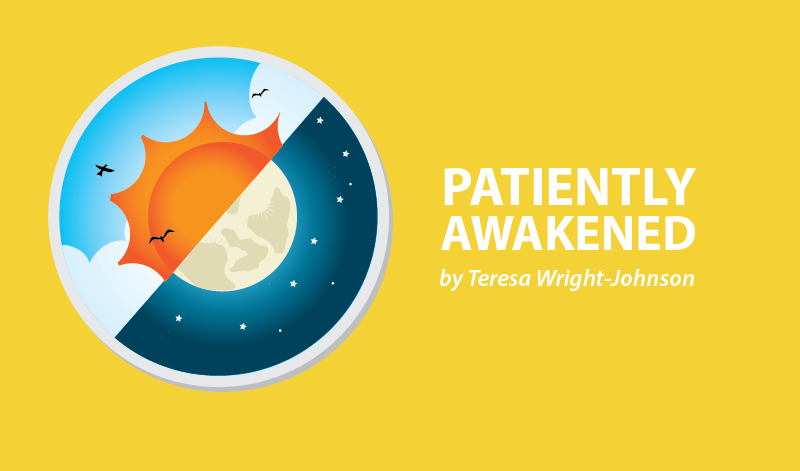MS and Mental Illness: The World Needs You


Spring has sprung! As I look around, Mother Earth is in bloom. Trees are sprouting new leaves, plants are growing, and the grass is green once again. I love spring and all that it represents — hopes for new birth and rebirth. For those who are unaware, May is Mental Health Awareness Month.
I write this week to encourage those who are battling and surviving mental illness and any related disorders. It serves to urge everyone to actively recognize the warning signs of someone in need of assistance. This column is a call to action to offer support, empathy, a safe environment, and to eradicate stigma.
The National Alliance on Mental Illness (NAMI) reports that one in five adults in the U.S. experience a mental illness, and one in 25 adults live with a serious mental illness. Mental health continues to be an issue that is under-discussed, undertreated, and often ignored. However, there are warning signs.
My experiences of having MS and heart disease have introduced me to depression and anxiety. From my window seat, my eyes opened to the struggle that many people face on a daily basis. I have vowed to learn about mental health disorders, speak openly about them, share my personal experience, get acquainted with available resources, and offer encouraging words.
On my journey as a heart health and MS advocate, I have met people who struggle, survive, and thrive with mental illness. I have realized that there is one commonality that we possess, which is to know that we matter. We need to know that someone cares and that they hear our voices. There is a desire to feel that we have value and the longing to feel that life, in all of its tragedy and turmoil, is really worth living.
My nephew had a mental illness, specifically a co-occurring disorder, for most of his adult life. Although he is no longer with us, I can recall several conversations we had. He had a desire to reach out and help others, and he often spoke of how his faith helped him through difficult moments. He also spoke of the judgment and stigma that accompanied his diagnosis. As I reflect on personal and professional experiences, I realize that stigma limits progress and recovery. Some people will avoid seeking help or reaching out because they are fearful of rejection. We each have a pivotal role in eliminating the stigma that often accompanies mental health disorders.
Please know that mental illness is not something a person can “just snap out of.” It takes much more than that. Mental illness, like any other illness, must be treated. Professionals must be consulted. But we can offer support and compassion, practice empathy, and tell someone, “I love you. I care.” Ask them: “Are you OK? Can I help? I care.” These positive affirmations and questions can make a difference.
To those surviving mental health illness and related disorders, I can only imagine how tough this road can be. I believe in you, and I believe that you are here for a reason. Keep fighting. Your family and friends need you. The world needs you. Never give up, because you do make a difference. Life is worth the struggle; remember you are never alone. Tell your story. There is hope and help out there.
“I hope you don’t mind that I put down in words how wonderful life is while you’re in the world.”
—”Your Song,” by Sir Elton John
I invite you to subscribe to my website at teresawrightjohnson.com.
***
Note: Multiple Sclerosis News Today is strictly a news and information website about the disease. It does not provide medical advice, diagnosis, or treatment. This content is not intended to be a substitute for professional medical advice, diagnosis, or treatment. Always seek the advice of your physician or other qualified health provider with any questions you may have regarding a medical condition. Never disregard professional medical advice or delay in seeking it because of something you have read on this website. The opinions expressed in this column are not those of Multiple Sclerosis News Today or its parent company, Bionews Services, and are intended to spark discussion about issues pertaining to multiple sclerosis.







Cassie
I am a marriage and family therapist who also has MS and understand the importance of therapy/mental health on two levels. As a person who got therapy after being diagnosed, I can say would not be in the positive place I am in now, without going to therapy. It can be helpful and if a therapist is not working for you, know you can leave them and get another one.
Lorrie Norris
You are correct, the world needs us. Since being diagnosed with PPMS, I have had a tough battle with depression. I didn't think that I was worth much anymore. I have gone from being a very active, independent person to be a dependent shut-in. There are time when I feel completely useless, what good am I. I have a wonderful, supportive husband who is always there for me. I am also very lucky that I have a great counselor that has helped me tremendously since my diagnosis.
I hope that things are going good for you.
Thank you for your article.
Lorrie
C
Thank you both for your posts. 18 yrs PPMS worked in hospitals; clients were MS patients. I have this, but it doesn't have me!